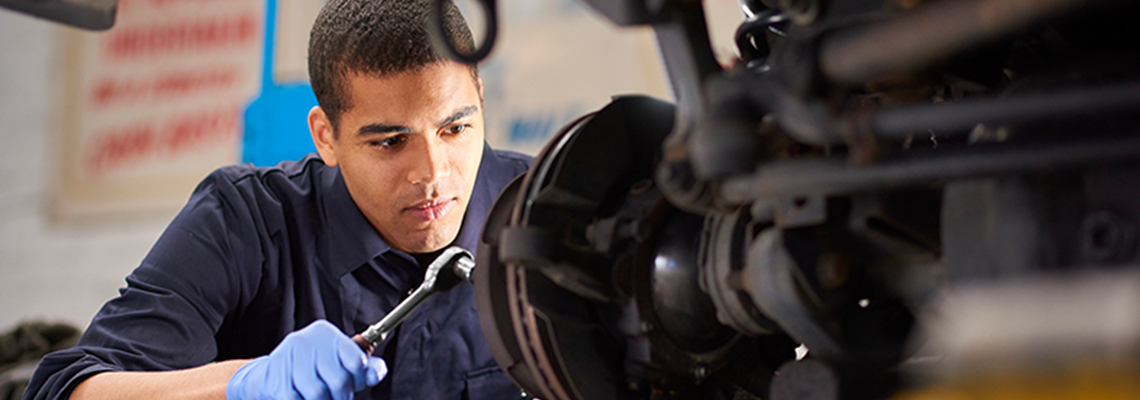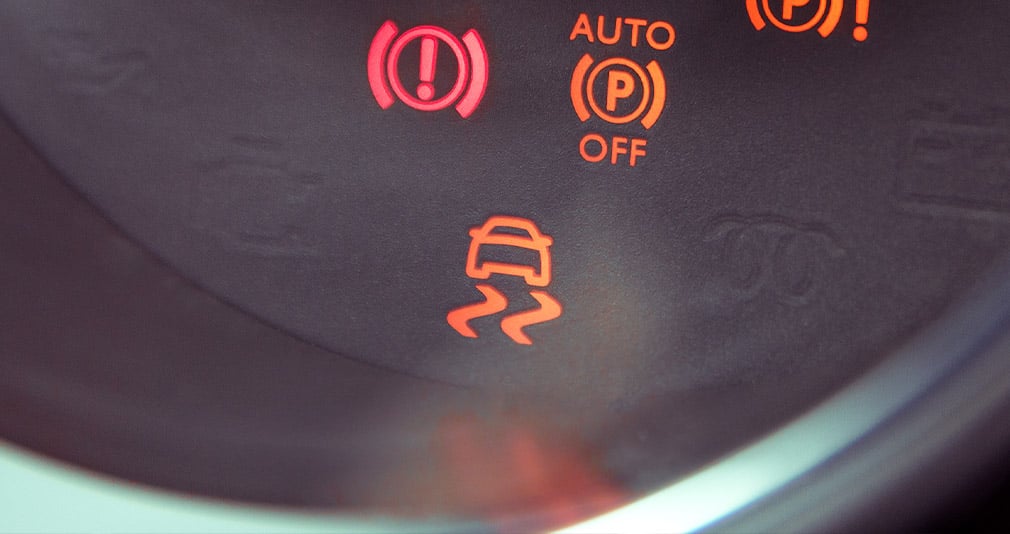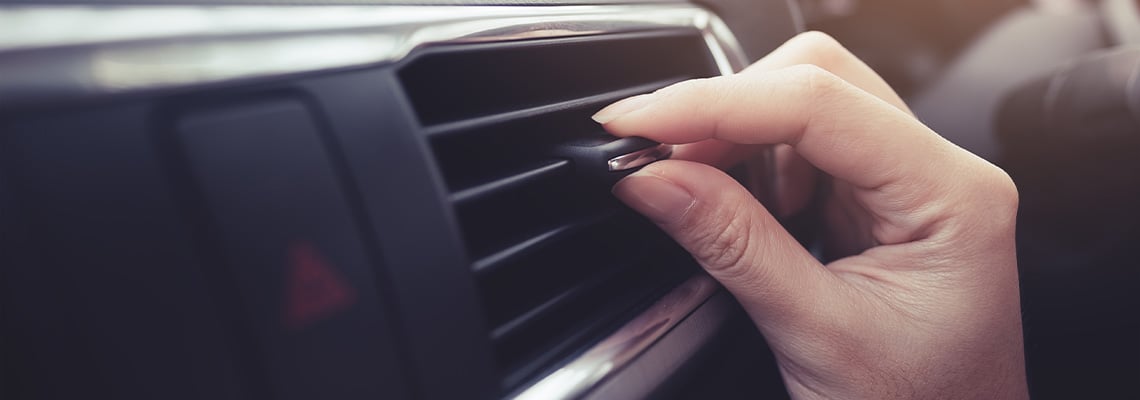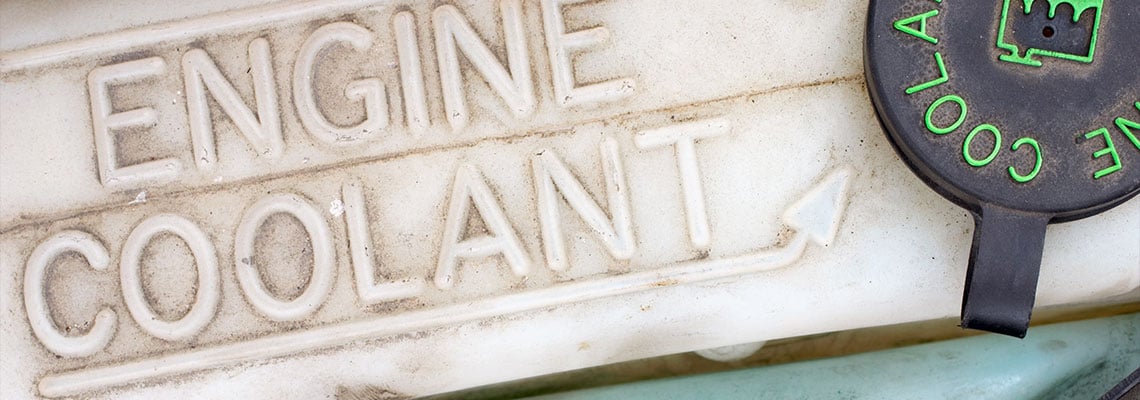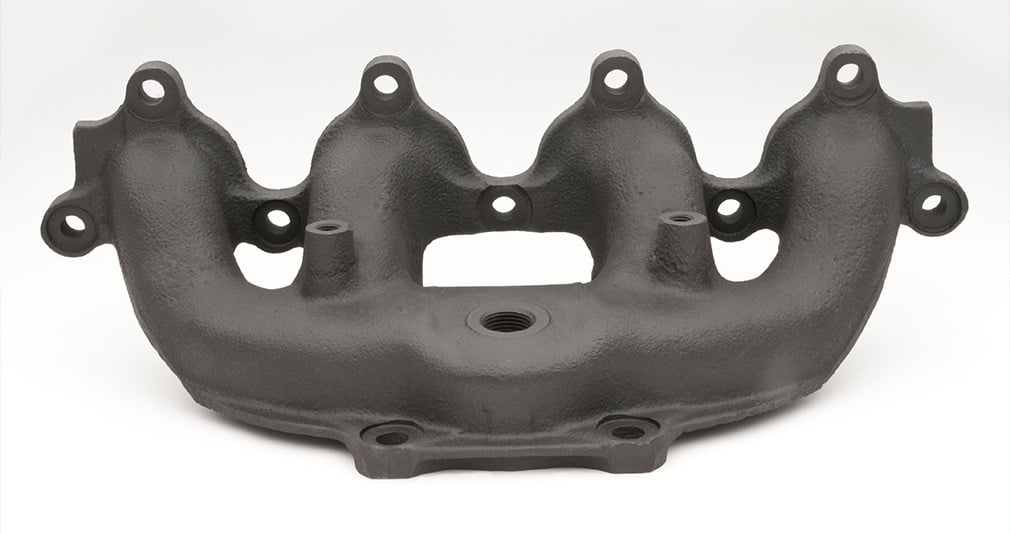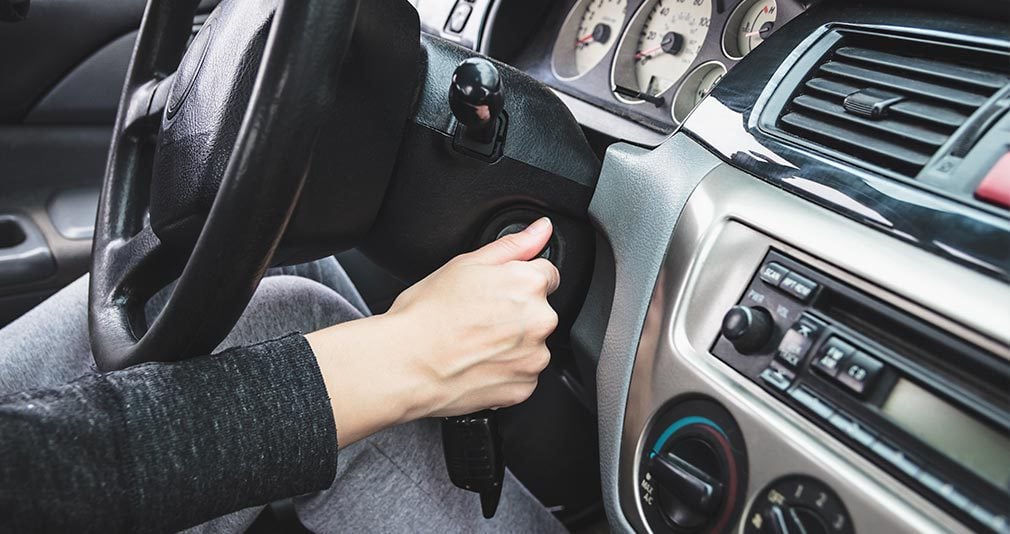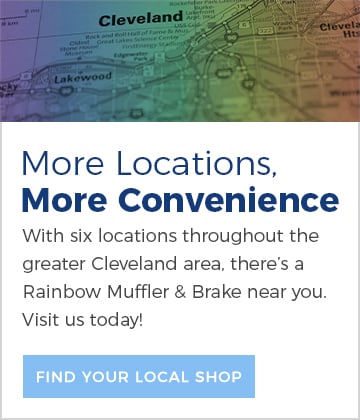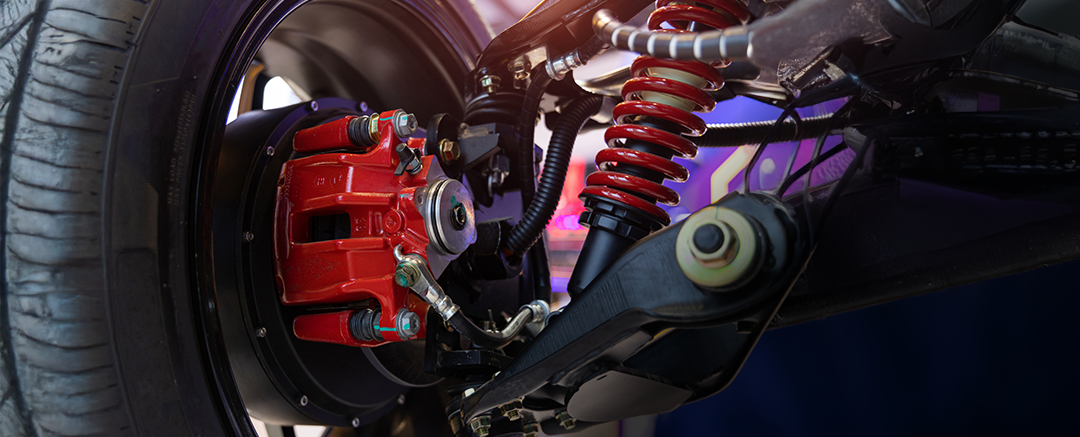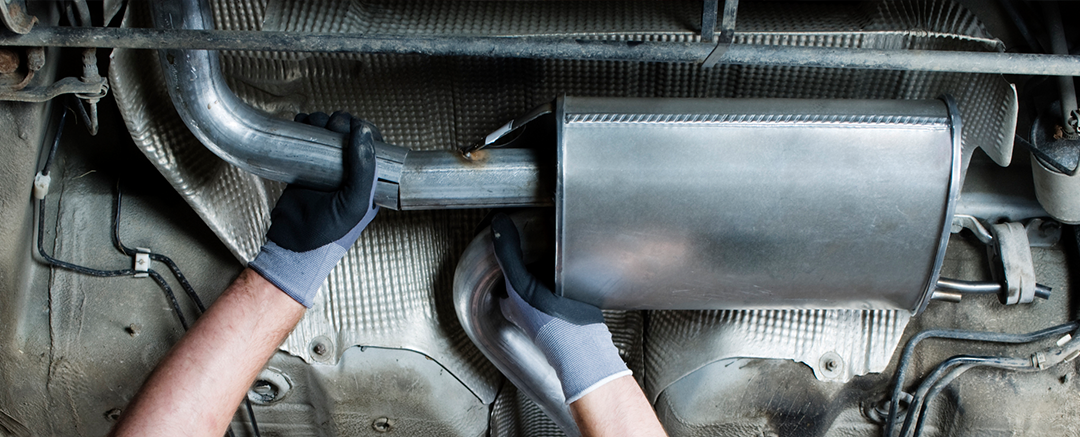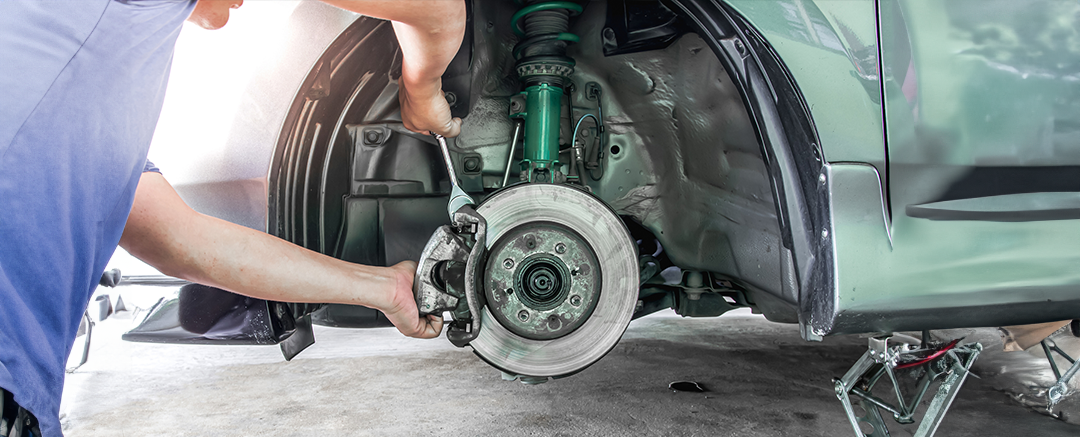Brakes are arguably the most important system on your car, but they're often the most overlooked until there is a real problem.
Keeping a well maintained vehicle helps extend the life of your car, as well as avoid unexpected — and unbudgeted — repairs. The best time to have your brake system inspected is during an oil change or other routine maintenance visit, so you can catch issues early before they end up costing you a lot more down the road.
Quality brake pads typically last between 30,000 and 70,000 miles, but pads are just a small part of the brake system, which includes ABS parts, brake fluid, calipers, hoses, cables, shoes, master cylinders, rotors, drums, springs, wheel bearings, backing plates, power boosters and more.
The good news is that your brakes will often let you know they need attention well before a complete, catastrophic failure. Here are three ways to know it’s time for brake repair.
#1: Your brake light is on.
The most obvious sign that your brakes might need some attention is an “on” brake warning light. Most cars have at least one brake light on the dash for the main system and then another for the anti-lock braking system (ABS). A brake warning light can be a flag for a number of different issues with any component of your brake system — from low fluid to a hydraulic system failure or other malfunction with your brakes.
If your brake warning light comes on and stays on, you should take your car in to get it looked at by a mechanic. Likewise, brake fluid that is leaking on the ground is a telltale signal that something is wrong. Brake fluid is very thin and can range from clear to a rusty orange color. If you have a brake fluid leak, have a mechanic inspect your brakes immediately. For more information on brake fluid and how much it costs to bleed brakes, read our blog post on the matter.
#2: You hear a squeaky, squealing or grinding sound while driving.
If you hear high-pitched squealing or screeching while you’re driving, or exclaim "my brakes are scratching", it could be that your brake pads are thin, almost worn out and need to be replaced. Brake wear indicators are small steel tabs that are attached by the manufacturer and designed to hit the rotor before the brake pad completely wears out. The squealing sound they make serves as a warning that you need new brake pads.
A squeaky sound after your car has been sitting overnight could also be from rust on the rotor. Sometimes, rain or condensation collects on the rotors causing a thin layer of rust to form. The squeaky sound is caused by fine particles of rust that have been scraped off by the brake pads and become embedded in the pads. This noise typically goes away once the layer of rust wears down.
A grinding, growling sound when you hit the brakes could also be an indicator that your brake pads are worn and grinding on the rotor, which can also cause your steering wheel to shake when braking. A “burning” smell when you use your brakes could mean your brakes are overheating, or you could be burning your brake pads.
#3: Your brakes aren’t as responsive as they used to be.
When you push the brake pedal, does it take longer than normal to stop your car? If so, it could mean that there is a problem with your brake system.
If your brakes feel “spongy,” it could be your hydraulic system. Air in the lines, failing calipers or a weak flex line can feel soft when you push the pedal. Brake pedals should feel firm and solid. On the other hand, if your brake pedal is too hard — you have to push the pedal too hard to get the car to stop — there could be another mechanical issue somewhere between the pedal and the master cylinder.
Another sign you may need brake repair is if your car is pulling to one side while braking. This could be the result of a worn-down caliper.
What To Do If Your Brakes Fail
If you experience one or more of these symptoms in your car while driving, you should take your vehicle to a mechanic immediately and have your brake system inspected.
Worst case, if your brakes fail while you’re on the road, don’t panic. Try pumping them. If the pedal goes right to the floor, you probably have a broken line. Keep pumping! In most vehicles, repeated pumping can build up pressure in the system, enabling the other lines to work, so you can at least pull over safely.
You can also try downshifting to reduce your speed until you can completely stop. You can use the emergency brake to try to slow down gradually, but be careful. Don’t crank it up all the way immediately, or it can cause your car to spin.
Not sure if you need brake service or repair? Our technicians can spot brake system issues before they cause a bigger, more dangerous and expensive problem. Stop by one of our many mechanic shops in Cleveland today!

